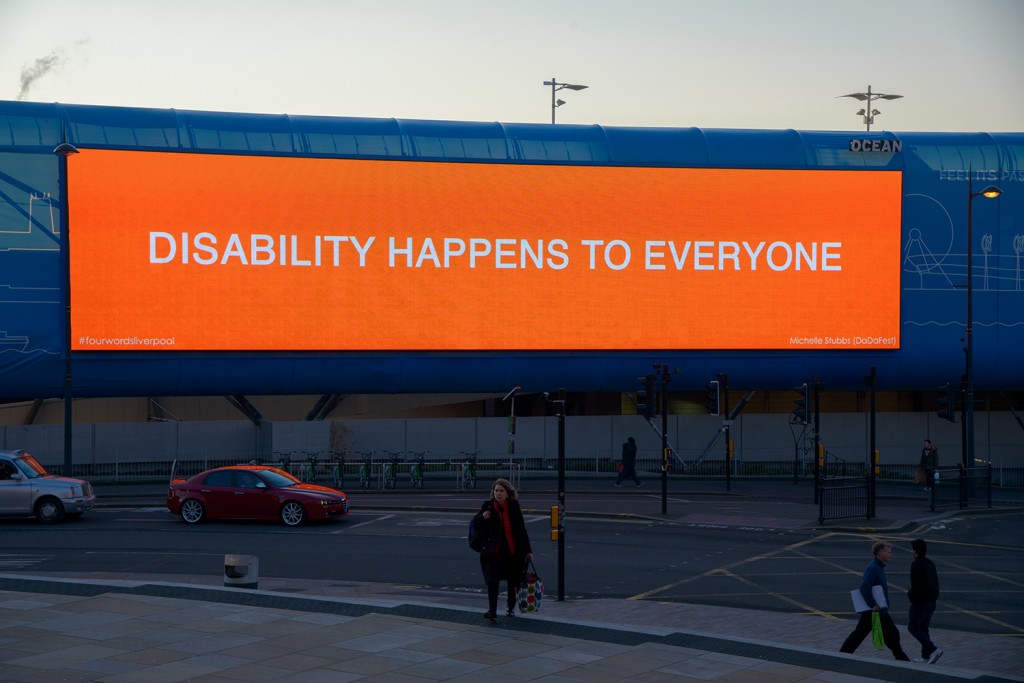
Coverage of the budget has been dominated by a focus on George Osborne’s headline-grabbing sugar tax, although it’s not quite enough to detract from the unfair deal for the embattled social care sector (check Twitter for #carecrisis to get a flavour of the feeling). The chancellor’s other measures are regarded as the ‘last straw’ for disabled people, already being hit by cuts, and he is now under fire from rebellious backbenchers opposing the £4.4bn cuts to disability benefits.
As Ruth Gould, the artistic director of the UK’s biggest disability arts event, DaDaFest, pointed out in an interview I did with her for the Guardian, the latest cuts threaten to make disabled people “more invisible”. The work of disabled artists, as she says, is also at risk, thanks to sharp reductions in funding from local authorities and Arts Council England (Ace).
In 2001, Gould organised a one-off community arts event for Liverpool city council to mark International Disabled Peoples’ Day. As the head of the North West Disability Arts Forum (NWDAF), Gould, who is deaf, argued a single day was inadequate, and designed a groundbreaking week-long festival.
Fifteen years on, DaDaFest is the UK’s biggest disability arts event and Gould its artistic director. The NWDAF eventually adopted the name of the jewel in its crown (“DaDa” refers to the initial letters of each word in the phrase “disability and deaf arts”), so DaDaFest refers to both the festival and its parent charity. Each biennial extravaganza draws 10,000 visitors and participants. It has launched the careers of comedian Laurence Clark and actor Liz Carr, and helped Liverpool win European Capital of Culture 2008.
Last week, as something of a curtain raiser to 2016’s two-week festival in November, DaDaFest held a seminar on the barriers to disability arts for black and minority ethnic people (BME). The awareness raising event complemented DaDaFest’s play, Unsung, recently performed at the Everyman theatre, based on the life of 18th century blind Liverpool poet, abolitionist and disability rights pioneer Edward Rushton.
Gould commends the Arts Council’s Creative Case for Diversity, launched in 2014 to encourage more BME, deaf and disabled people into arts, but fears such efforts are a drop in the ocean. She explains: “We don’t have the disabled people who put people on the stage – the producers, the casting directors, curators, decision makers.” She adds of DaDaFest’s recent BME seminar: “We tried to attract those we see as gatekeepers…[to] look at the barriers and issues and use them to try and influence change by identifying benchmarks that we can reflect onto to see if change if happening.”
Recent figures show just 2% of the arts workforce is disabled, an increase of 0.2% on previous year. With 19% of the UK registered disabled and the employment rate among disabled people at 46% (around 30% lower than the rate among able bodied people), this highlights the poor representation of disabled people in the arts.
You can read the rest of the interview here.
